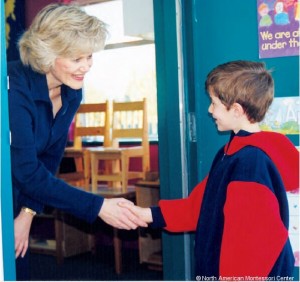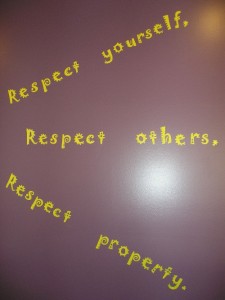 The one thing that brings the greatest amount of angst or embarrassment to a parent is when their child shows a lack of respect in a public place – where others are able to observe the behavior. Disrespect can be shown in many different ways in different forums – really by anyone. Lets talk about showing respect in our community starting with school.
The one thing that brings the greatest amount of angst or embarrassment to a parent is when their child shows a lack of respect in a public place – where others are able to observe the behavior. Disrespect can be shown in many different ways in different forums – really by anyone. Lets talk about showing respect in our community starting with school.
How do we show respect when we are in school? It may begin with how we treat the teachers, classmates and even the support personnel in the school. Of course we expect that our children demonstrate respectful behavior towards the teacher. What does that look like? Following the directions given, doing work quietly without disruption to the class. It may also include see what additional help we might be able to give the teacher – running errands, cleaning up after ourselves and others, speaking to them as if we value their efforts. As a side note if teachers would like to have respect shown towards them, then they also must show this same respect to the class, by being well prepared, addressing them without sarcasm, providing their expectations in a clear and reasonable manner.
What about our classmates? How do we show respect for them? When they are answering a question are we listening closely or are we wildly shaking our hand in the air because we want to talk. Respectful behavior would be to put our hand down and listen in a manner that shows that we value what they have to say (even if it is not the “correct” answer).
When taking a quiz or test, being sure that we answer our own questions and not be looking to others to help us on a test (cheating). Being fair to others is a way of showing respect. This is true even on the playground or in the cafeteria. Respect can be shown by being kind to each other, even if they are not a part of our closest acquaintances.
Continuing this thought about school – are we careful with the equipment in the classroom? Treating books, the media room equipment, the chairs and desks with the utmost care, knowing that others need to have use of this equipment is a way of showing respect for the property that does not belong to us, but that we have been invited to use while we are in the classroom.
This sort of culture in the classroom and school really begins by working on this at home and reemphasizing it as our children go to school. Even teachers who show respect to their students will find that the students will return the respect. Working on this culture will have its rewards in the community – not just at schools but also at restaurants, grocery stores, museums, and other public venues.


